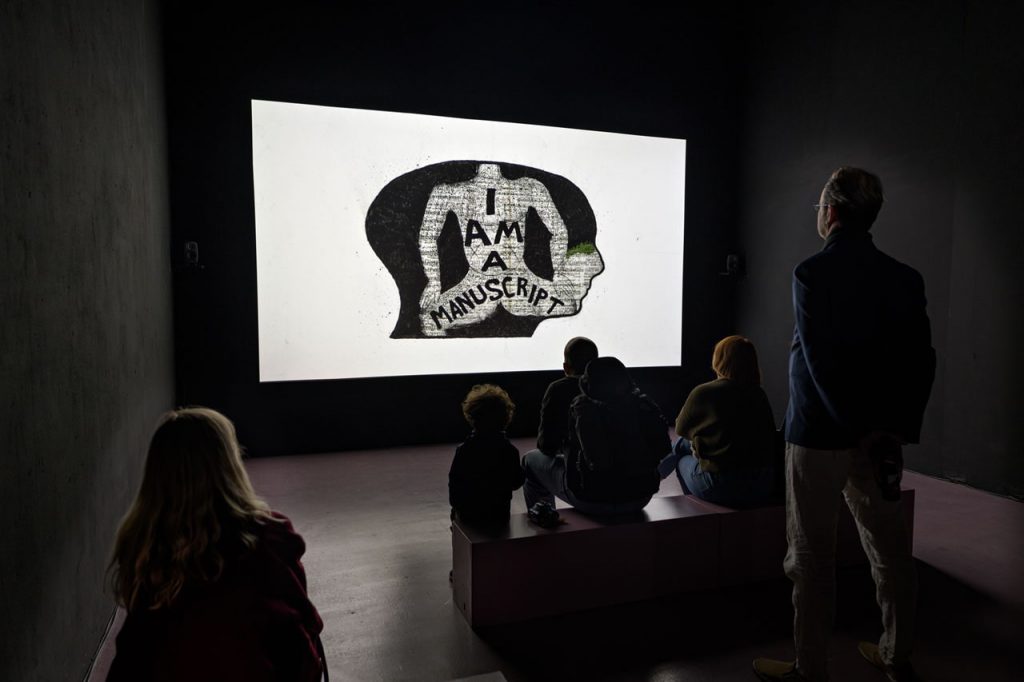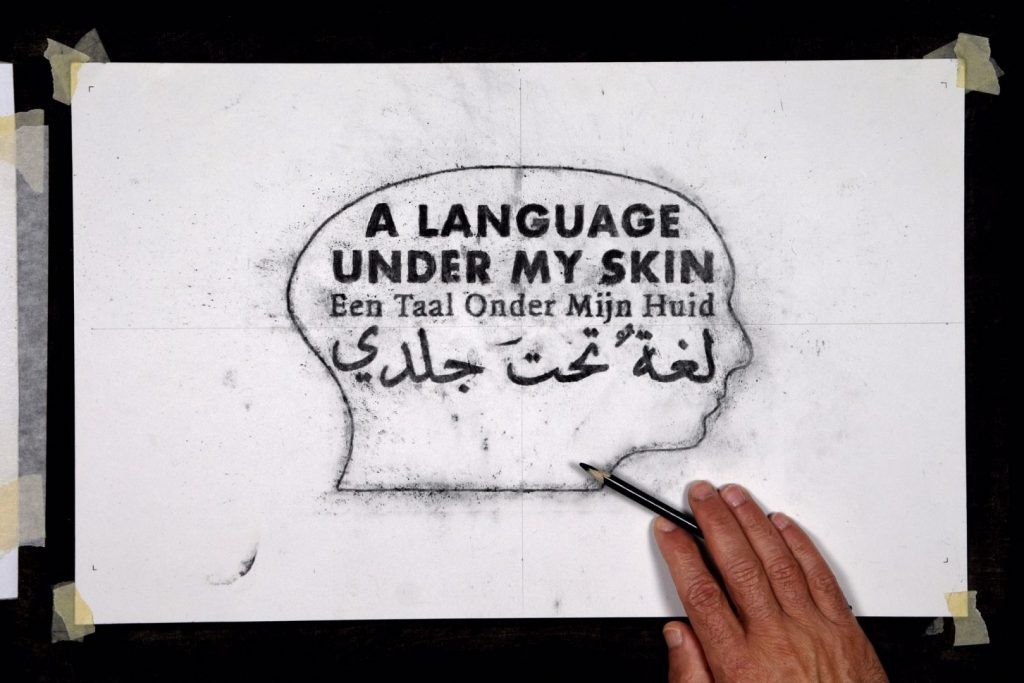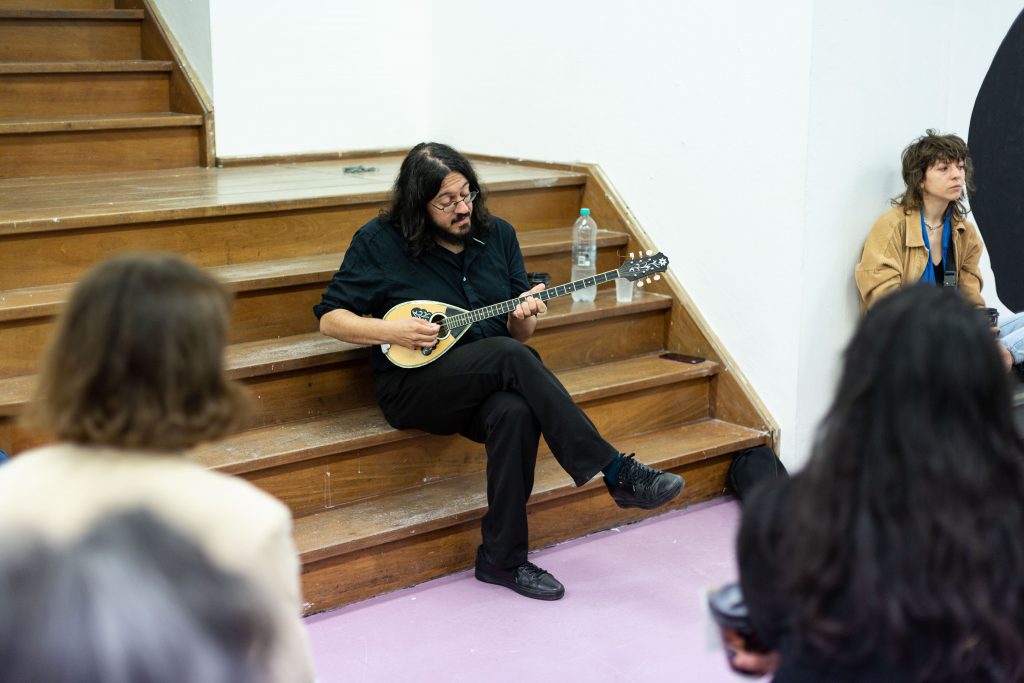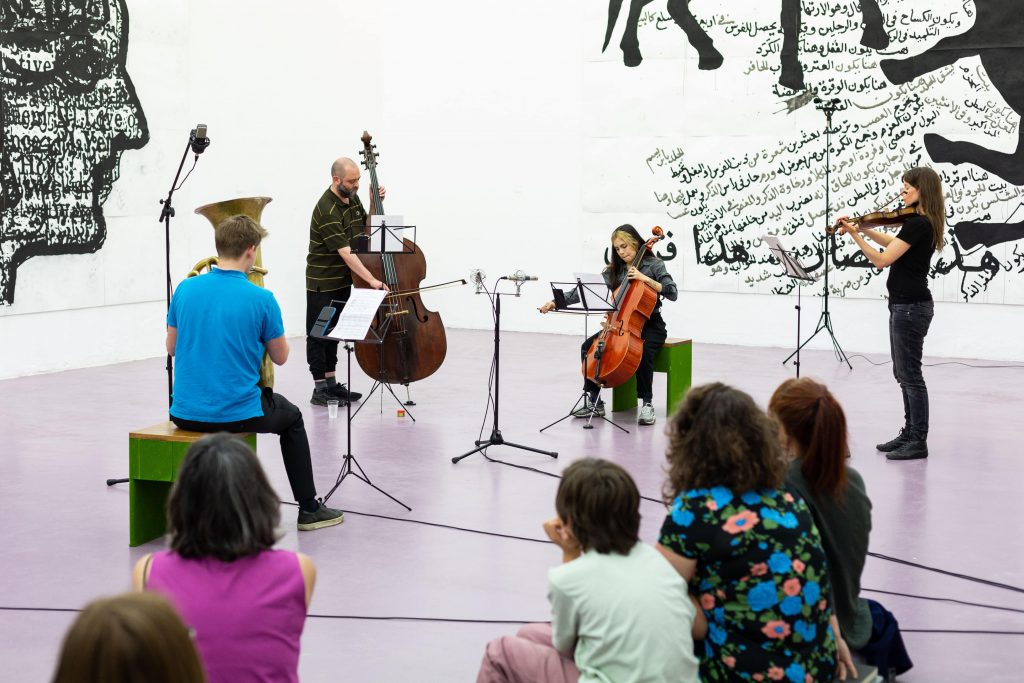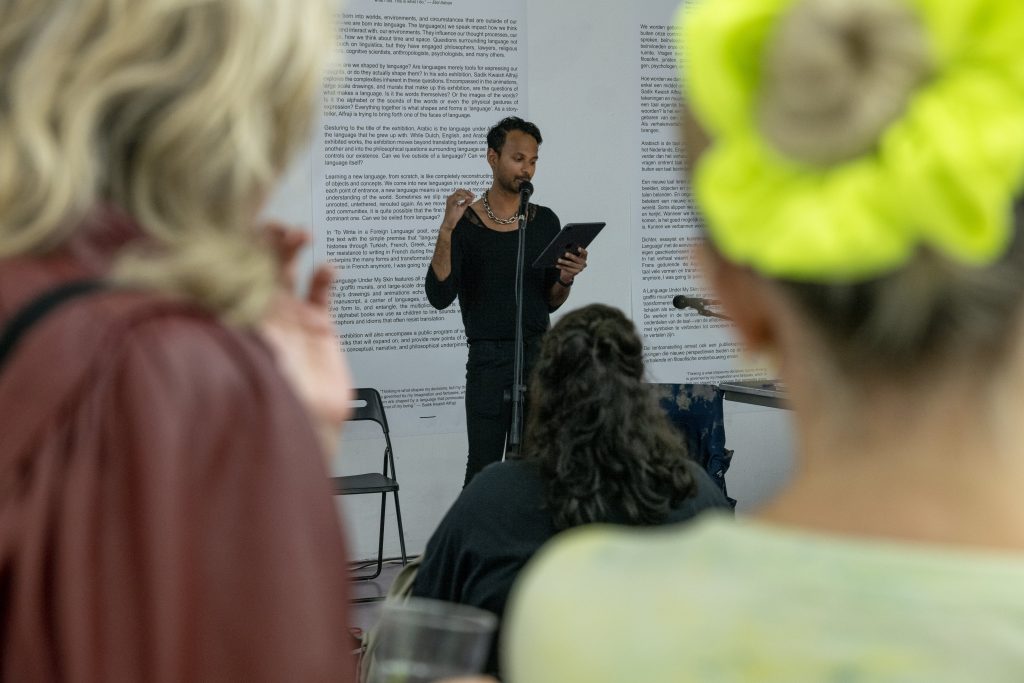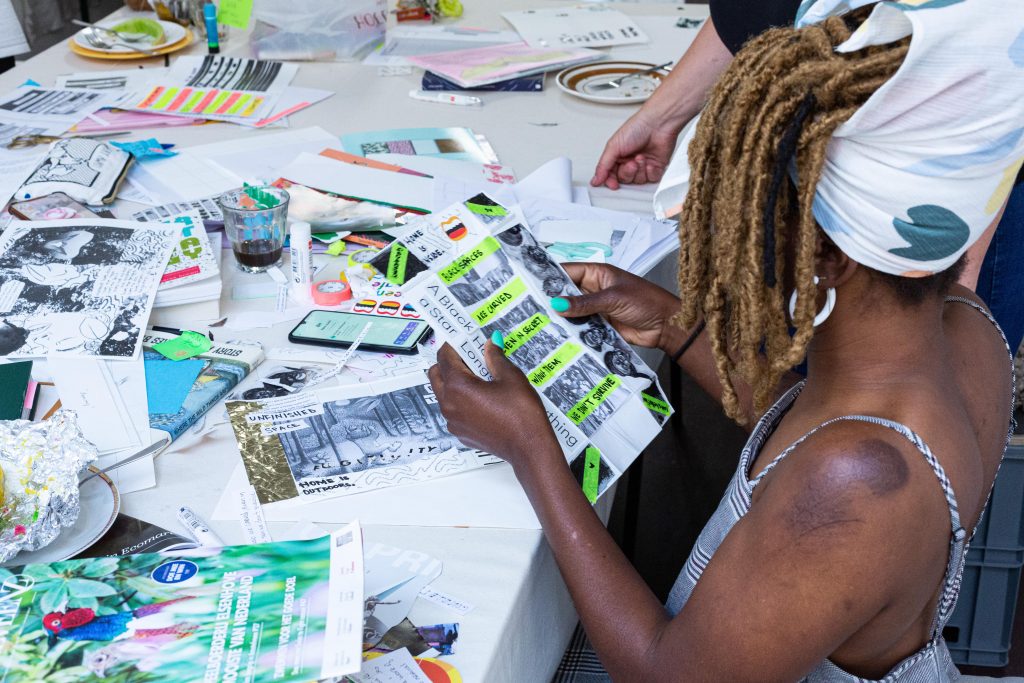A Choir of Tongues II
Through conversations about our personal experiences and using artistic resources, we will develop and share our own tools for translation.
About this Event:
Led by Sara Santana López and Maria Paris, in Choir of Tongues II, we get together to explore what is considered a mother tongue and how we can translate it. Texts brought by everyone in each of our mother tongues will become the center of the discussion. We will imagine and discuss our own translation tools by finding ways to share them. In which language can I express myself? What does it mean to understand? What is a shared language? These and other questions will guide us while we collaboratively experiment with translation.
If you’d like to participate, you need to bring a small text in your mother tongue. It could be an extract from a book dear to you, something you wrote, a story someone told you, or maybe a song from your childhood. A text the length of a paragraph or a short poem will be enough.
Through conversations about our personal experiences and using artistic resources, we will develop and share our own tools for translation. In pairs, we will use those tools to experiment and transmit our texts to one another. We will try to listen beyond language and read other than words, translating into different ways of understanding.
In her work Sara Santana López looks for ways of participation in the political and power relations inscribed in cultural practice, finding ambivalent strategies which implicate herself simultaneously as author, mediator and part of the public. Conversation and encounter determine her process, establishing a direct space of negotiation swinging between the intimate and the collective.
Maria Paris’ practice translates silence across multiple media, revealing the elasticity and permeability of language. Often through installations, her work raises questions on how poetics can be a radical political tool. Concepts of absence and removal are entangled in various forms, reflecting on the emotional and political nature of places and language. Currently, her practice is focused on displacement and translation as material spaces for identity and poetics.

